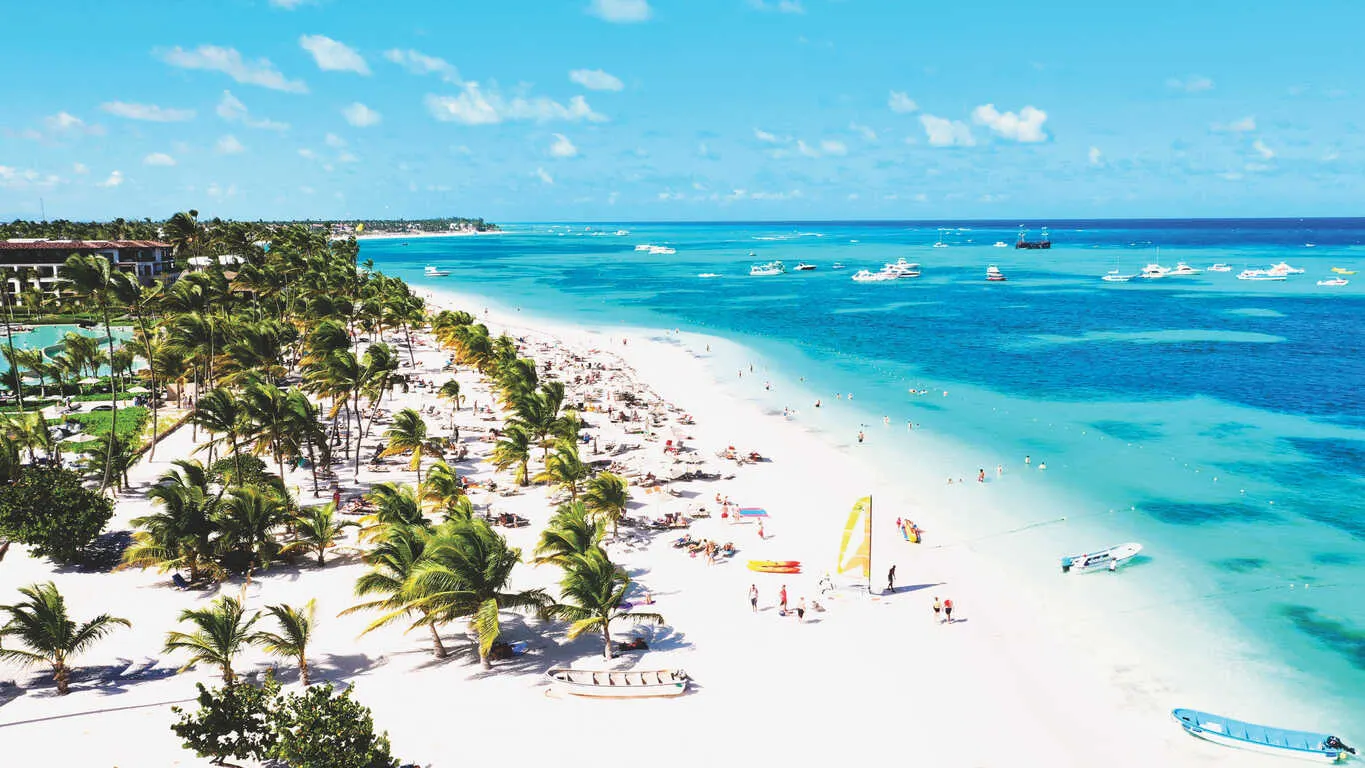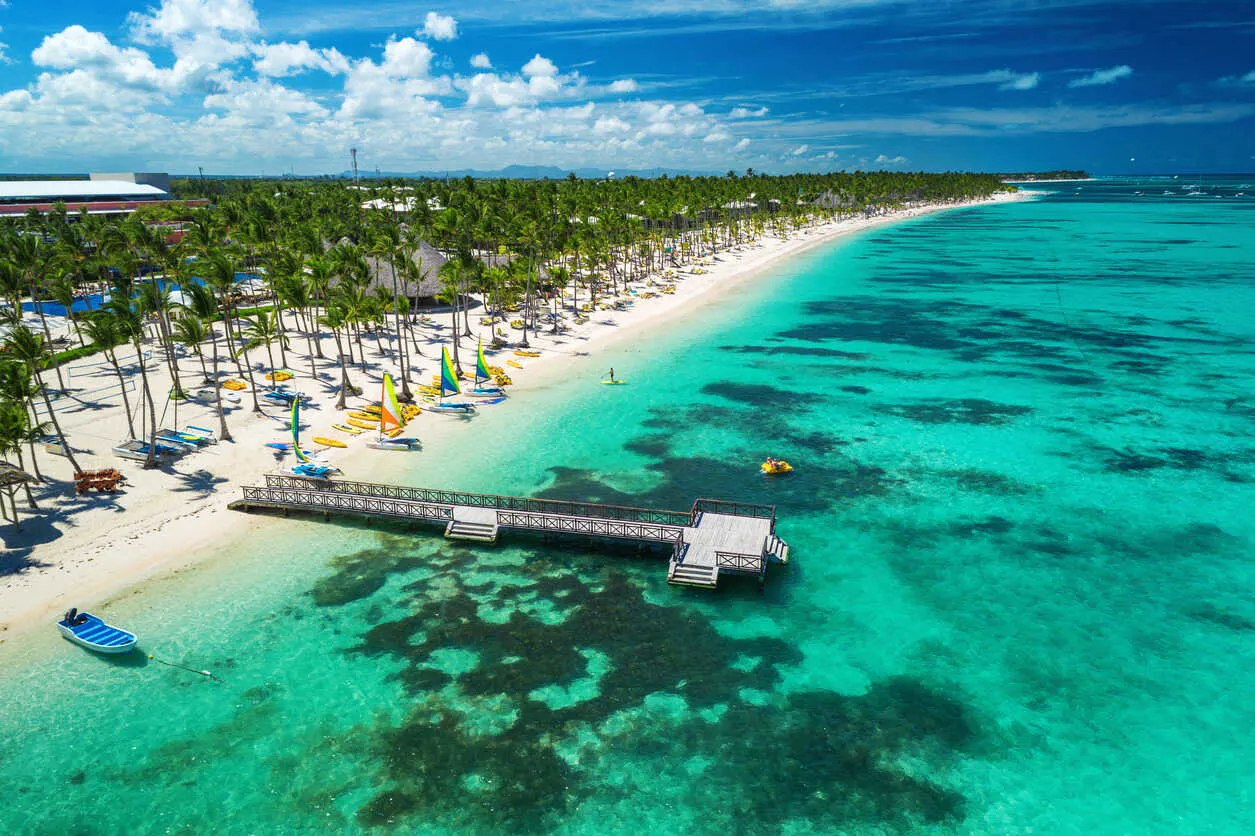The Dominican Republic is one of the "sleepers" of the Caribbean. Other nations dominate the headlines, but the DR has as much to offer… if not more.
It has a stable, business-friendly environment and a thriving, diverse economy. You can live among the ultra-rich in an exclusive enclave or among mere mortals in a frontier beach town… where few rules are observed.
Here you’ll find "the kind of freedom that went out of style back home decades ago. It’s Monaco-level luxury at jaw-droppingly affordable prices."
The DR gets dismissed as a mere "tourist" destination—it boasts many popular resorts. But as Ben shows, there are many reasons to stay long term… and, even better, it’s not hard to do.
If you’re from the US, Canada, the EU, the UK (and many other countries) you can stay for 30 days without a visa. Then you can extend your stay up to 120 days by contacting the Immigration Service. This gives you plenty of time to have a look for a place you might like to settle down.
Foreigners can easily get long-term residency. Visa terms are attractive for retirees, people of independent means, homeowners, and other expats.
Plus, you can work here…
An unusual feature of the DR’s immigration system is that holders of the three permanent residency categories above are allowed to work in the country. It’s the only country in the region I’m aware of that allows this.
Also unusual—at least in today’s world—is that the DR doesn’t currently offer a digital nomad visa. That means if you want to live in the country and work remotely, you need permanent residency via one of the three fast-track visas (see sidebar). Having said that, it’s unlikely that the government makes much effort to check whether people living on temporary residence permits work remotely.
YOUR CHANCE TO RETIRE OVERSEAS NOW
YOUR CHANCE TO RETIRE OVERSEAS NOW
Sign up for our free daily IL Postcards e-letter and we'll immediately send you a free report on the WORLD'S #1 RETIREMENT HAVEN—plus 9 more of the most desirable and very affordable destinations where you can upgrade your retirement right now. Each day you'll learn about the best places to retire, travel, buy real estate and enjoy life overseas.
By submitting your email address, you will receive a free subscription to IL Postcards and special offers from International Living and our affiliates. You can unsubscribe at any time, and we encourage you to read more about our Privacy Policy.
The Temporary Residency Permit: Stay for a Year at a Time… Indefinitely
A temporary residence permit allows you to stay in the DR for one year, and can be renewed indefinitely if you continue to qualify.
You must apply for temporary residency at a Dominican embassy or consulate in your home country. You cannot apply inside the country. You’ll need passive income of at least $2,000 per month, and to either own a home or have a job in the DR.
This visa is ideal for people who want to buy a home in the DR and stay as long as they like. It’s also suitable if you want to buy a property for rental investment but don’t want to live in the country full time. You should apply at least two to three months before you intend to arrive in the DR.
You’ll receive a Temporary Resident Visa stamp in your passport. You then have 60 days to travel to the DR and complete the process. Although you can do this yourself if you speak good Spanish, most people engage a local law firm. The fees are between $1,200 and $2,000 dollars per person. For the first five years, residency must be renewed each year. Then you can renew for four years, then for 10 years at a time.
Time-In-Country Requirements
Time in the country on a temporary residency permit counts toward permanent residency and citizenship, so many opt for that rather than continual extensions of temporary status. People who live in the DR on a temporary residence permit can apply for permanent residency after five years.
There is no minimum time in country to keep residency status under the three fast-track programs. (If you hope to get citizenship, however, the government will expect you to have spent considerable time in the country and learned Spanish.)
Permanent Residency (With a Catch)
DR permanent residency status must be renewed periodically, whereas in most other countries, the status is granted once, in perpetuity.
The DR’s rationale is to ensure that the permanent resident still meets the qualifications that got them the visa in the first place. In that sense, these are not permanent residency permits at all; they’re renewable long-term visas. That means if your circumstances change and you no longer qualify, you can lose that status.
There is also a family reunification visa for relatives of people with permanent residency status. This is aimed at dependent children and elderly relatives who need your personal care.
Become a Citizen in Only Two Years

People who apply for the fast-track citizenship process under the Inversionista visa (details below) can get naturalized in under a year.
Holders of other types of visas can become a citizen of the DR after two years of living there as a permanent resident. Holders of temporary resident permits must put in five years, followed by two years, as a permanent resident to qualify for naturalization.
The DR allows dual citizenship. As passports go, the DR’s is what I would call an "Plan B" passport. The DR document only has visa-free access to about 50 countries—far less than other passports in the region, like Panama’s or Costa Rica’s, which offer visa-free access to more than double that number.
That makes a DR citizenship attractive if your goal is to have a place to go if things deteriorate back home… and less useful if your goal is to travel the world on your second passport.
Get a Tax Exemption on Foreign-Source Income
The DR has a territorial tax system. It imposes tax only on income from Dominican sources. Most income from abroad, including pension and Social Security, is tax exempt. That’s the case whether you’re a tax resident, which happens after spending 183 days in the country in one year, or non-tax-resident.
The one exception is capital gains from non-pension financial investments like stocks and bonds. These are taxed as ordinary income at a standard rate of 25%. The good news: This obligation only begins three years after you become a resident.
The country is able to offer low taxation because it levels a goods and services tax (GST) of 18% (on most goods and services, included in the sale price of relevant items.) It’s a form of invisible tax common in developing countries.
Finally, 1% annual property tax is assessed on real estate owned by individuals (based on government valuations).
This tax only applies to home values above $173,000. It’s also exempted for individuals 65 years or older who own no other properties. Certain properties also benefit from a 15-year exemption.
The DR doesn’t have a tax treaty with the United States, but the IRS will generally credit you for any taxes paid there.
Note that if you overstay as a tourist in the DR without requesting an extension, you’ll pay a fine—starting at about $42 for overstays of a few days. During his recent stay in the DR, Ben found that some expats choose to just pay the fines when they come and go from the DR, rather than get official residency.
But as I’ve shown you, this is unnecessary. The DR offers several ways to gain secure long-term residency that don’t involve breaking any laws or paying any fines. It also offers one of the world’s fastest pathways to a second passport, at under one year in some cases.
So if life—and potentially citizenship— in a fast-growing, up-and-coming Caribbean island nation is your cup of tea, check out the Dominican Republic as soon as you can…
3 Fast Tracks to "Permanent" Residency

Pensionado Visa
Like Panama, the DR offers a pensionado visa. This requires a minimum monthly pension income of $1,500 (or $1,750 for a couple). Unlike the temporary residency permit, it is possible to apply for the pensionado visa after you’ve arrived in the country on a tourist visa.
The visa is valid for two years and is renewable as long as you continue to qualify. Despite this, pensionado status is considered a form of permanent residency. The processing time for a pensionado visa is about two or three months, as long as all the paperwork is in order. The various government fees and exams cost around $700 per applicant.
Rentista Visa
This is available to people who can prove a foreign-source passive income of at least $2,000 a month that is guaranteed for at least five years (with an added $250 for each dependent). Income from foreign wages or company profits do not qualify.
Unlike the pensionado visa, the rentista visa doesn’t require this income to be from a pension. It can come from:
Savings in a foreign bank, as long as they are sufficient to cover $2,000 a month for at least five years.
Rent income from non-DR real estate.
Dividends from foreign securities.
Interest, income, or dividends from real estate investments in the Dominican Republic, provided that the investment was made with foreign money.
For all of these sources of income, you must prove a monthly transfer of the qualifying amount into a bank account in the DR itself. The rentista visa is similar to the pensionado, but with a wider choice of income sources—making it suitable for people who haven’t reached retirement age.
The Rentista Visa is also different from the temporary residence permit in that it doesn’t require that you own a property in the country. Rental accommodation is accepted.
Inversionista (Golden) Visa
Although the Dominican Republic doesn’t call it a golden visa, it does offer investment-based residency. The Inversionista visa is available to anyone who puts at least $200,000 into a local business, local financial instruments like stocks or bonds, or real estate. The visa includes immediate family members.
The Inversionista visa qualifies you to apply for citizenship by investment within six months of getting permanent residency. Depending on the processing time, this could give you a second passport in under 12 months.
The Inversionista visa has a number of benefits:
Exemption of 3% transfer tax on your first property purchase after obtaining residency
Exemption of the annual 1% real estate tax
Partial tax exemption on the purchase or importation of a vehicle
Importation of household goods duty-free
Exemption of taxes on income earned in the DR (except Airbnb income)
Partial tax exemption on the purchase of Furniture
Consult with Me, One-on-One
My Mission: To Make Your Life Simpler, Safer, and Freer … Not More Complicated
Stop overcomplicating, second-guessing, or giving in to “information paralysis” … Let’s sit down together (online), and I’ll help you create a custom blueprint for your international goals… second passports, tax, travel, retirement, estate, business, and more…
